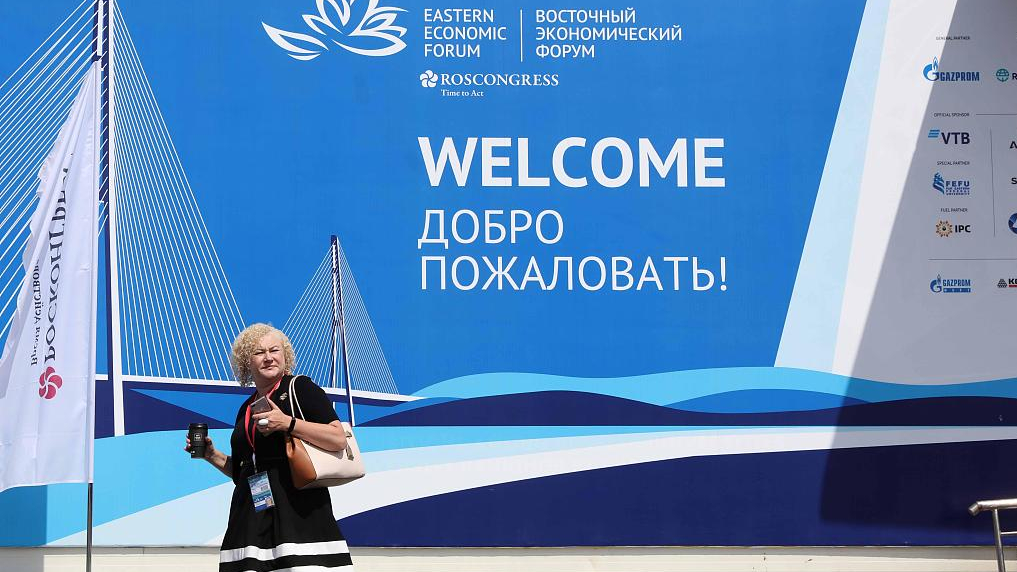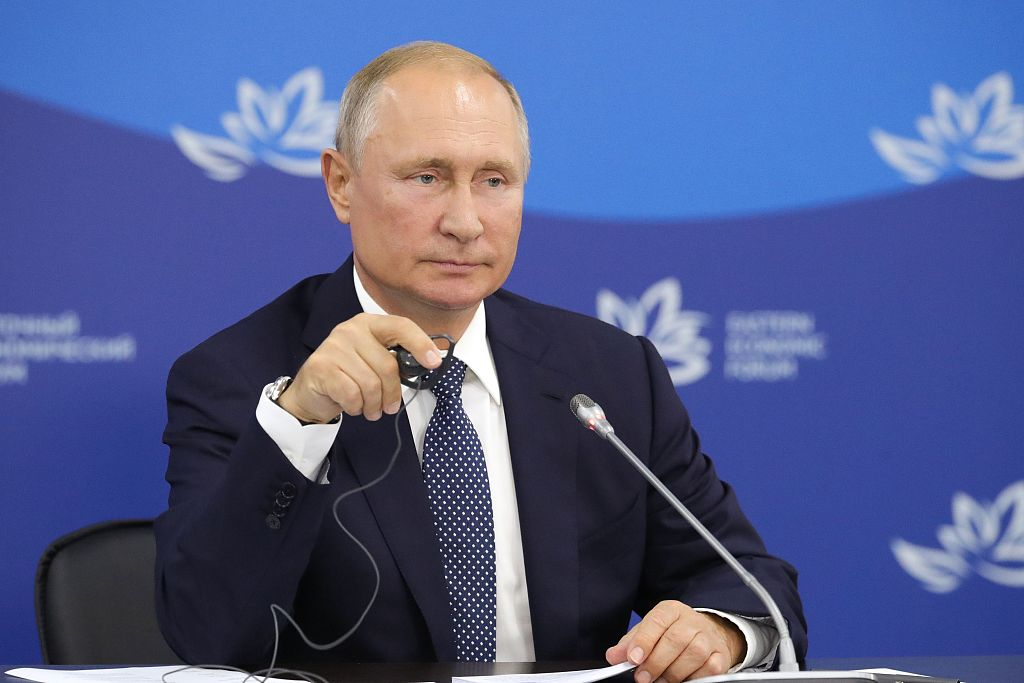

Editor's note: Vladimir Petrovskiy is a chief research fellow at the Institute of Far Eastern Studies, Russian Academy of Sciences, and also a full member of the Russian Academy of Military Science. The article reflects the author's opinions, and not necessarily the views of CGTN.
The 5th Eastern Economic Forum (EEF) is being held in Vladivostok, Russia, on September 4-6 as an annual international forum. The forum aims to bring economic development by encouraging participants to invest in Russia's Far East. As this year marks the 70th anniversary of the establishment of diplomatic ties between China and Russia, and China is also Russia's largest trading partner, the two will continue to establish closer cooperation in areas, such as energy security, science and technology, and pledge to maintain international stability.
With the United States under the leadership of Donald Trump and the clock ticking on the Brexit deadline, many leaders are choosing to conduct unilateral actions but multilateral institutions like the EEF have been forged as a venue for solving issues related to anti-globalization and nationalism. China and Russia have always upheld multilateral dialogues as the venue for solving international problems. Thus, the EEF could be regarded as a countermeasure by China and Russia against rising unilateralism.
Currently, China and Russia are both under an economic assault from the U.S. in the form of tariffs and sanctions respectively. As neighbors and close trading partners, China and Russia would definitely address this issue at the EEF. They would use it as a venue to pool the resources in the Asia-Pacific region and create more economic opportunities to fight back against the United States' unilateral actions.
At the EEF, China and Russia will talk about the principles of free trade on the basis of WTO rules, the inadmissibility of applying various kinds of restrictions and sanctions that interfere with normal trade and economic cooperation. Over 5,000 participants from 50 countries are attending the EEF, out of which 3,700 are from Russia. There will be delegations from China, Japan, South Korea and India.
Guests from the United States, Singapore and the United Kingdom will also be in attendance. Apart from those in the government, more than 480 Russian entrepreneurs and 140 heads from foreign companies have also confirmed their participation.

Russian President Vladimir Putin chairs a State Council meeting at the 5th Eastern Economic Forum in Vladivostok, Russia, September 4, 2019. /VCG Photo
During his speech at the plenary meeting of the forum, Russian President Vladimir Putin will focus on plans to accelerate the socio-economic development of the Far East. The plenary session, as the main event of the forum, will also include speeches by the President of Mongolia Khaltmaagiin Battulga, Indian Prime Minister Narendra Modi, Malaysian Prime Minister Mahathir Mohamad and Japanese Prime Minister Shinzo Abe.
On September 5, Putin will meet with the China's Vice Premier Hu Chunhua. During the meeting, they will "check the clock" on pressing issues of deepening Russia-China cooperation. On the sidelines of the forum, Vice Premier Hu together with Deputy Prime Minister of Russia Yuri Trutnev will hold a meeting of the Russian-Chinese intergovernmental commission for cooperation and development of the Far East and the Baikal region of Russia and the northeast of China.
For example, Heilongjiang Pilot Free Trade Area (FTA) was inaugurated in Harbin on the eve of the forum. The pilot FTA will be regulated around the deepening of the industrial structure, creating a central hub for regional cooperation focused on Russia and Northeast Asia. Through the integration of existing checkpoint resources in Heilongjiang Province and unified political planning, the FTA will be built as an important platform for inter-regional cooperation between China and Russia. Moreover, it will further improve cooperation among countries in Northeast Asia and accelerate the construction of an economic China-Mongolia-Russia corridor.
The pilot FTA has set out the first step on this path, and it is expected to expedite the process of integration of the Asia-Pacific region.
The 2019 EEF will also play an important role in easing the tensions on the Korean Peninsula, working to lift Pyongyang out of international economic isolation resulted by U.S. sanctions. The forum will be attended by a government delegation from the DPRK, headed by its Vice Premier, Ri Ryong Nam. He will also hold a series of meetings on economic cooperation.
To conclude, the 2019 EEF will definitely bring new opportunities for the China-Russia cooperation and integration of the Asia Pacific.
(If you want to contribute and have specific expertise, please contact us at opinions@cgtn.com.)

Copyright © 2018 CGTN. Beijing ICP prepared NO.16065310-3
Copyright © 2018 CGTN. Beijing ICP prepared NO.16065310-3